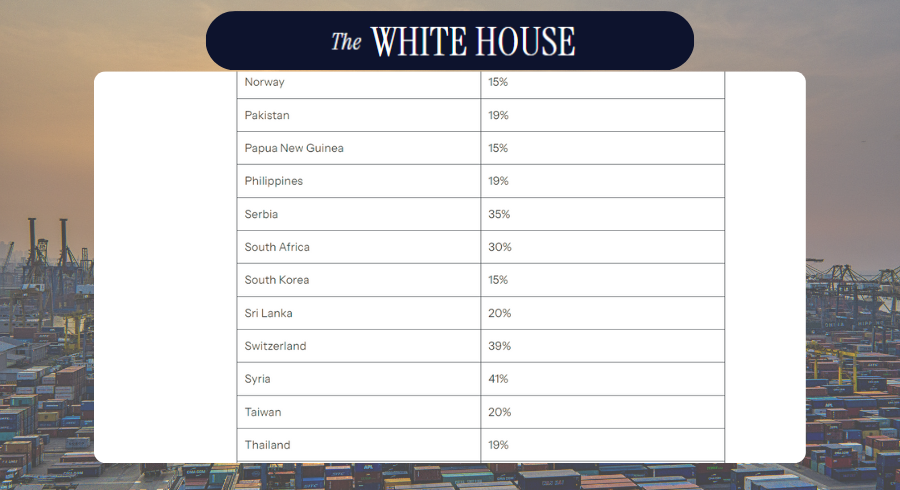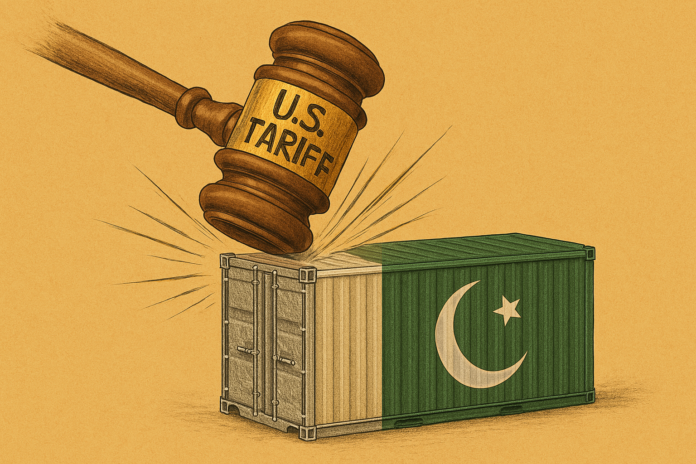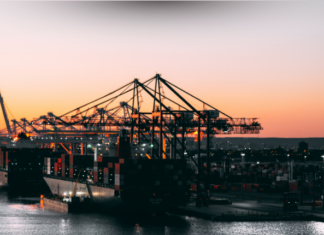The US has imposed a 19% reciprocal tariff on Pakistani goods, significantly lower than the initial 29% proposal, under a new executive order signed by the administration of President Donald Trump on Thursday.
The tariff applies to a wide range of Pakistani products, part of broader tariffs of up to 41% on goods from multiple countries, including Pakistan.
The US president on Friday imposed tariffs on exports from dozens of trading partners, including Canada, Brazil, India, and Taiwan. The tariffs include a 35% duty on goods from Canada, 50% on Brazil, 25% on India, 20% on Taiwan, and 39% on Switzerland, as outlined in a presidential executive order.

Read This: Trump hits dozens of countries’ goods with steep tariffs
Trump’s executive order cites persistent trade imbalances and the lack of reciprocity in bilateral trade relationships as the reasons behind the new tariffs. The order states that the US faces “unusual and extraordinary threats” to its national security and economy due to large annual trade deficits.
The 19% tariff on Pakistan is lower than those imposed on some regional competitors, including India (25%), Bangladesh (20%), Vietnam (20%), and Sri Lanka (20%).
Analysts believe the move could open up more market access for Pakistani goods, especially textiles and apparel, potentially boosting export earnings and stimulating industrial growth.
The tariff adjustment comes a day after Pakistan and the US agreed on a partnership to develop Pakistan’s oil reserves. President Trump announced on social media that the US would work with Pakistan to tap into its oil resources, with plans to choose an oil company to lead the initiative.
Finance Minister Muhammad Aurangzeb emphasized that the deal marks a broader economic and strategic partnership between the two nations. He noted that the focus was on a balanced approach, with trade and investment working hand in hand.
Pakistan had faced the threat of a 29% tariff on its exports to the US after tariffs were announced in April. However, negotiations have led to the current tariff reduction. In 2024, Pakistan’s trade surplus with the US was around $3 billion, largely driven by textile exports, with the US being the biggest market for Pakistani textiles.























